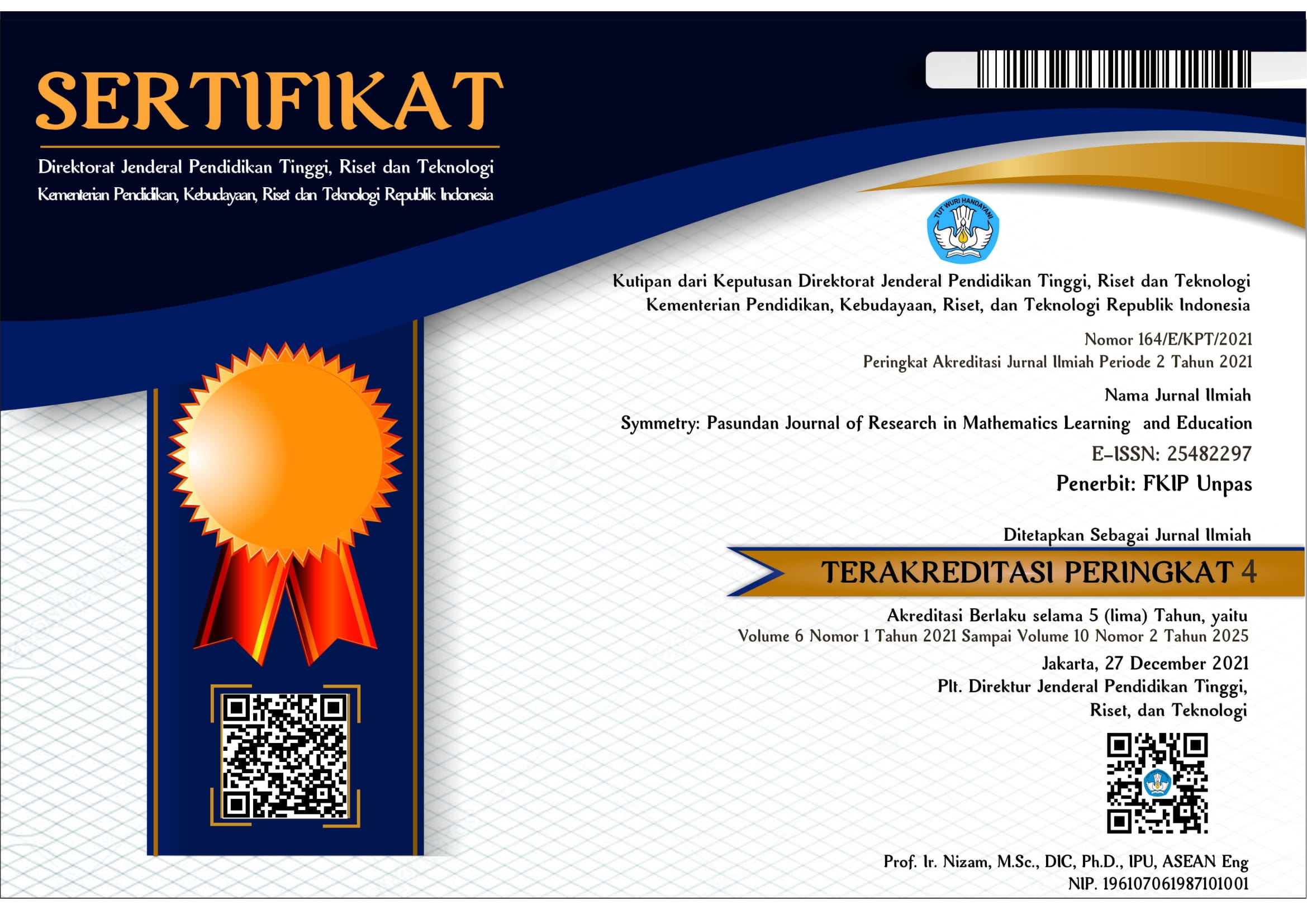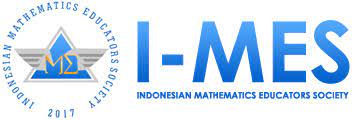EFEKTIVITAS MODEL PEMBELAJARAN PROJECT BASED LEARNING (PjBL) MELALUI GAME EDUKASI TERHADAP KEMAMPUAN PEMECAHAN MASALAH MATEMATIS SISWA
DOI:
https://doi.org/10.23969/symmetry.v10i1.29621Abstract
This study aims to determine the effectiveness of the Project Based Learning (PjBL) learning model through the educational game media snakes and ladders on students' mathematical problem-solving abilities. The background of this national research is based on the low mathematical problem-solving abilities of students as shown by international data, as well as the still dominant use of conventional learning methods that do not actively involve students. This study uses a quantitative approach with a quasi-experimental method and a Nonequivalent Pretest-Posttest Control Group Design. The subjects of the study were grade VIII students at SMP Negeri 7 Kuningan in the 2024/2025 academic year, with samples consisting of two classes: an experimental class using the PjBL model through educational games, and a control class using conventional learning. Data were collected through pretest and posttest tests and student response questionnaires. The results showed that there was no significant difference in initial abilities between the two classes. However, after the treatment, there was a significant difference in the posttest results and an increase in the N-Gain score of mathematical problem solving ability between the experimental and control classes, which were analyzed using the Mann Whitney U non-parametric test. In addition, the results of the questionnaire showed that students gave a positive response to learning with the PjBL model through the snake and ladder educational game, with an average percentage of 75.025% in the high category. Thus, it can be concluded that the PjBL model through educational games is effective in improving students' mathematical problem solving abilities and is able to create a fun and interactive learning atmosphere.
Downloads
References
Al Addawiyah, A., & Addawiyah, B. (2022). Kemampuan Representasi Matematis Siswa Dalam Menyelesaikan Soal Himpunan Dan Kemandirian Belajar. Plusminus: Jurnal Pendidikan Matematika, 2(1), 111–120.
Amam, A. (2017). Penilaian Kemampuan Pemecahan Masalah Matematis Siswa Smp. Teorema: Teori Dan Riset Matematika, 2(1), 39–46.
Apandie, C., & Rahmelia, S. (2022). Project Citizen Mata Kuliah Kewarganegaraan Untuk Meningkatkan Keterampilan Berpikir Kritis Mahasiswa Di Institut Agama Kristen Negeri Palangka Raya. Jurnal Civic Hukum, 7(2).
Ardiyani, W., Rohana, R., & Dhony, N. N. A. (2024). Kemampuan Pemecahan Masalah Matematis Melalui Game Edukasi Berbasis Wordwall. Jems: Jurnal Edukasi Matematika Dan Sains, 12(2), 127–133.
Cahya, R. (2019). Pengaruh Game Interaktif Terhadap Peningkatkan Pemahaman Konsep Matematis Siswa Smp. De Fermat: Jurnal Pendidikan Matematika, 2(2), 83–92.
Efstratia, D. (2014). Experiential Education Through Project Based Learning. Procedia-Social And Behavioral Sciences, 152, 1256–1260.
Fadli, R., Hartono, H., & Irvandi, W. (2023). Pengembangan Game Education Ular Tangga Materi Peluang Terhadap Kemampuan Pemahaman Matematis. J-Pimat: Jurnal Pendidikan Matematika, 5(2), 883–892.
Fatmawati, I. (2021). Peran Guru Dalam Pengembangan Kurikulum Dan Pembelajaran. Revorma: Jurnal Pendidikan Dan Pemikiran, 1(1), 20–37.
Febriani, S. W., Sandie, S., & Darma, Y. (2023). Game Edukasi Matematika Berbantuan Rpg Maker Mv Materi Bangun Datar Terhadap Kemampuan Pemecahan Masalah Matematis. Teorema: Teori Dan Riset Matematika, 8(1), 172–180.
Hamari, J., Koivisto, J., & Sarsa, H. (2014). Does Gamification Work?--A Literature Review Of Empirical Studies On Gamification. 2014 47th Hawaii International Conference On System Sciences, 3025–3034.
Hasbiyallah, H., & Ihsan, M. N. (2022). Administrasi Pendidikan Dalam Merdeka Belajar Perspektif Islam Versi Terbaru. Uin Sunan Gunung Djati Bandung.
Kurniawan, W. (2023). Exploring The Effects Of Gender, Technology, And Economic Status Towards Indonesian Students’ Science Performance In Pisa 2022.
Mullis, I. V. S., Martin, M. O., Kennedy, A., Trong, K., & Sainsbury, M. P. (2015). Assessment Frameworks. Timms And Pirls International Study Center, Boston College.
Udin, M. R., Mastur, Z., & Semarang, U. N. (2023). Symmetry: Pasundan Journal Of Research In Mathematics Learning And Education. Symmetry: Pasundan Journal Of Research In Mathematics Learning And Education, 8(2), 21–30. Https://Doi.Org/10.23969/Symmetry.V8i2
Utami, S. (2017). Pengaruh Model Pembelajaran Flipped Classroom Tipe Peer Instruction Flipped Terhadap Kemampuan Pemecahan Masalah Matematik Siswa. Fakultas Ilmu Tarbiyah Dan Keguruan.
Downloads
Published
Issue
Section
License
Copyright (c) 2025 Symmetry: Pasundan Journal of Research in Mathematics Learning and Education

This work is licensed under a Creative Commons Attribution 4.0 International License.
Hak Cipta sepenuhnya ditangan jurnal.



















